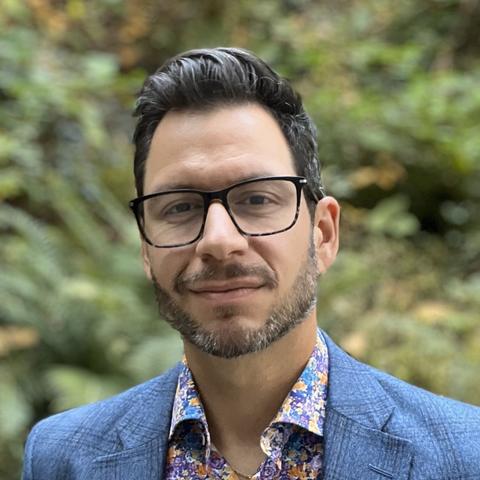
Section Branding
Header Content
Georgia Today: USPS oversight hearing planned; New MARTA stations proposed; Coal ash ponds
Primary Content
On the Friday April 12th edition of Georgia Today: A senate hearing is planning on looking into delays at the US Postal Service; Atlanta Mayor Andre Dickens unveils the proposed locations for three new MARTA stations; And we’ll take a closer look at Georgia Power’s plans to close toxic coal ash ponds.

Peter Biello: Welcome to the Georgia Today podcast from GPB News. Today is Friday, April 12. I'm Peter Biello. On today's episode, U.S. senators are planning on looking into delays at the U.S. Postal Service. Atlanta Mayor Andre Dickens unveils the proposed locations for three new MARTA stations. And we'll take a closer look at Georgia Power's plans to close toxic coal ash ponds. These stories and more are coming up on this edition of Georgia Today.

Story 1:
Peter Biello: Georgia will receive $25 million to share with select public water utilities to help them test and begin treating drinking water with dangerous "forever chemicals." Georgia's $25 million is the state's share of $1 billion, flowing from the federal bipartisan infrastructure law, on the heels of the first ever enforceable federal standard for levels of PFAS chemicals in drinking water. PFAS, used in everything from pizza boxes to nonstick cookware to raincoats, are linked to health outcomes like cancer, heart disease and diabetes — strong chemical bonds that can persist in the environment for hundreds of years. The money is to be shared among water systems in rural and disadvantaged communities for initial testing of drinking water for PFAS chemicals. The definition of "disadvantaged" will be left up to the states. Widespread PFAS pollution has already been documented across much of Northwest Georgia.
Story 2:
Peter Biello: Georgia's method for verifying voter's citizenship status will remain in place for the 2024 election. A federal judge yesterday granted Secretary of State Brad Raffensperger motion to dismiss challenges to the verification process. Georgia uses an exact match protocol, which requires the name on the voter registration to exactly match records on file with the Georgia Department of Driver's Services or Social Security Administration. Plaintiffs argued a transposed letter, additional blank space, or missing or added hyphen or apostrophe could cause a mismatch, which would disproportionately impact African American, Latino, or Asian American voters. The advocacy groups that brought the suit argued the process violated the Voting Rights Act. This ruling in federal court follows a similar ruling in favor of Georgia's citizenship verification process and the Fair Fight Action case two years ago.
Story 3:
Peter Biello: Earlier this week, Atlanta-based Norfolk Southern settled a class action lawsuit out of East Palestine, Ohio, agreeing to pay back some of the victims of a devastating train derailment last year. The crash also pushed the company to further invest in safety. GPB's Sofi Gratas has more from Jackson, the latest place to get new technology that's part of a nationwide safety project in partnership with Georgia Tech's research institute.
Sofi Gratas: Every time a train goes through this point on this rail line between Atlanta and Macon, 38 cameras mounted on an arced station light up, making 1,000 images above, around and below the train. About 19 trains come through here every day. John Fleps is with Norfolk Southern.
John Fleps: So it's looking for fatigue cracks. It's looking for conditions that are starting to wear down. If we can find that before it fails, it saves a whole lot of potential risk down the road.
Sofi Gratas: Using AI, photos with alerts get sent to a hub in Atlanta. And if there's a problem, inspection teams are notified along tracks statewide. This is the third digital train inspection portal installed. The first two were installed last October near the site of the crash in East Palestine. For GPB News, I'm Sofi Gratas in Jackson.
Story 4:
Peter Biello: Another incarcerated man has died at Fulton County Jail. Travis Landry was found unresponsive in his cell on Wednesday. The preliminary cause of death is suicide. The Atlanta Police Department is conducting an investigation, and the Fulton County Medical Examiner's Office will perform an autopsy. The Fulton County Jail has long faced allegations of unsafe conditions and overcrowding. Landry's death follows that of another incarcerated man who was stabbed last week. The first two months of 2024 were the worst first two months of a year for violent deaths in Georgia prisons since modern recordkeeping began in 2015. There were twice the number of homicides and suicides by the end of February, as compared to the same time frame last year.

Story 5:
Peter Biello: Atlanta Mayor Andre Dickens has unveiled the proposed locations for three of the new MARTA stations he announced in his state of the city address last month. In an administrative order yesterday, Dickens proposed locations at Krog Street and Hulsey Yard, Joseph E. Boone between Ashby and Bankhead, and Armor Yards in Buckhead. The mayor previously had announced a proposed location at Murphy Crossing in Southwest Atlanta. In yesterday's order, Dickens says he wants the city to collaborate with the Atlanta BeltLine and MARTA to "deliver equitable transportation projects across Atlanta."
Story 6:
Peter Biello: The U.S. Postal Service will be the subject of a U.S. Senate Homeland Security hearing Tuesday next week. Lawmakers are calling for Postmaster General Louis DeJoy to provide testimony as complaints roll in across Georgia and the U.S. about missing mail. Sen. Jon Ossoff, who serves on the committee, has previously demanded answers from DeJoy about mail delays.
Story 7:
Peter Biello: Grant funding is now available to improve infrastructure in rural Georgia. The Rural Surface Transportation Grant program was made possible by the Bipartisan Infrastructure Law. It offers funding to improve street safety through a U.S. Department of Transportation grant process. Eligible projects could include efforts to protect pedestrians, bicyclists, motorists, and commercial vehicle operators, or efforts to improve public transportation. Applications are due May 6.
Story 8:
Peter Biello: An effort is underway in Southwest Georgia to restore the childhood home of a legendary figure in jazz. GPB's Orlando Montoya reports on what could become a new museum in Randolph County.
Orlando Montoya: Fletcher Henderson Jr. was born in Cuthbert in 1897. He later moved to New York, where he's credited with forming the first big band orchestra in 1920 and contributing to the development of swing. Minnie Lewis and Wesley Williams now own his childhood home — also the home of Fletcher Henderson Sr., an important Black educator in Cuthbert.
Minnie Lewis: I feel that the people in Cuthbert and surrounding areas need to continue to remember this remarkable family.
Wesley Williams: It's a legacy that we all know about here in Cuthbert, and would like for other folks to do that as well.
Orlando Montoya: The house stood in disrepair for many years. Lewis and Williams are working on acquiring family artifacts and period furniture, replacing the roof and installing HVAC, among other projects. For GPB News, I'm Orlando Montoya.

Story 9:
Peter Biello: With The Masters in full swing this weekend, the hometown of golf's biggest event is highlighting lesser-known legends of the tournament. For nearly 50 years in Augusta National Golf Course's history and the tournament, all the caddies were African-American, says Corey Rogers, executive director of the Lucy Craft Laney Museum of Black History. The museum's "Men on the Bag" exhibit tells the stories of caddies like Willie "Pappy" Stokes or Henry Brown. Roger says they were experts on the game and the course, but often went unrecognized. He hopes the exhibit will help change that.
Corey Rogers: We want to expand the narrative. We want to expand the discussion. We want to tell the individual story that has led to the collective. So the collective story of The Masters and the collective story of golf writ large cannot be told without these individuals.
Peter Biello: He says the caddies helped the world's top golfers secure a green jacket. Men On The Bag includes actors portraying the legendary caddies, a discussion with some of the living caddies, and food. It runs twice a month all year.
Story 10:
Peter Biello: The weather forecast this weekend looks fantastic, with sunny skies and temperatures in the 70s all across the state. It'll be a nice weekend to get outside, and if you're looking for things to do, here is a short roundup of events. This is the final weekend of the Savannah Music Festival. The Georgia Mountain Storytelling Festival is in Hiawassee. Elijay plays host to a pet-friendly festival called Woofstock. That one features a '70s-themed pet costume contest. There's the Bogart Butterfly Festival, downtown Elberton's Spring Fling and the Suwannee Arts Festival, and the Alpharetta Wine Festival. In the small town of Warwick, Ga., you'll find the National Grits Festival, and there are a few Dogwood Festivals across the state, specifically in Terri and Tallapoosa. And the Atlanta Dogwood Festival kicked off today at Piedmont Park; runs through the weekend with booths from hundreds of artists from across the country. Peach Jam, GPB's TV show and podcast, will be presenting Atlanta's own Celtic punk band, The Muckers, on the Coca-Cola Main Stage on Saturday afternoon. So stop by and say hi to some of the fine folks who work at GPB who will be maintaining our booth near the 12th Street entrance.

Story 11:
Peter Biello: Coal ash is nasty stuff. The material left over from burning coal to make electricity is full of heavy metals and chemicals, tied to everything from cancers to developmental delays in kids. There are millions of tons of coal ash in Georgia Power's ash ponds: deep bodies of water where the toxic material has been sucked away for decades. As GBP's Grant Blankenship explains, what's being hotly debated now is whether Georgia Power's plans to close their ash ponds are legal.
Grant Blankenship: Today, Gloria Hammond's house is the last one left on Luther Smith Road in Monroe County by Georgia Power's Plant Scherer, and behind her house runs a creek: Berry Creek.
Gloria Hammond: I actually walked down here the other day.
Grant Blankenship: Yeah?
Gloria Hammond: Yeah.
Grant Blankenship: How come?
Gloria Hammond: Just to go look, but not nostalgia. You know, my husband's birthday was yesterday and just getting out walking. Things we used to do.
Grant Blankenship: How was — how was that, yesterday?
Gloria Hammond: Well, it's been five years. It's same as it always is. It's just hard.
Grant Blankenship: The headwaters of Berry and a large aquifer are under 16 million tons of Georgia Power's coal ash just uphill from us. Gloria still wonders if the groundwater she, her husband, Cason and many of her neighbors drank from the tap for decades is connected to Cason's death and the deaths of some of their loved ones, too.
Gloria Hammond: It's hard to have proof. You know, he had prostate cancer that just metastasized like that. Then he had another cancer, too. It was two different cancers. And, we've had a upswing of that around here. Throat and tongue cancer.
Grant Blankenship: The list of suspicions is long.
Gloria Hammond: Why not suspect?
Grant Blankenship: The old homes on Luther Smith Road have long been replaced with monitoring wells stuck into the aquifer. And one thing residents of the Monroe County community of Juliette have said for years would help them quell their suspicions would be if, when Georgia Power finally closes the Plant Scherer ash pond, they seal it off from groundwater forever. But that's not the utility's plan. This spring Georgia Power began the very first step in closing Scherer's Ash Pond 1. Their plan, not yet approved by state regulators, is to shrink the footprint of the pond by about a third and compact all 16 million tons of toxic material into one pile. But wet ash is very heavy. To move it, the utility has to dry it out first. The process now underway is called dewatering.
Jean Brown: So we just wanted to come up here because you get a good view, kind of the south part of the ash pond. And that was the — there's the intake pumps, there.
Grant Blankenship: A few weeks ago, Georgia Power environmental specialist Jean Brown and others led a tour of the dewatering. We're about two stories up on a metal grated walkway overlooking the ash pond. I can see the water flowing under the grate, which has been through a roomful of pumps where special chemicals have made the tiniest particles of toxins clump up.
Jean Brown: They — the flocculant forms and settles out. So it's basically removing the solids from the water. So there's three different ...
Grant Blankenship: Eventually, the clear water will be pumped into the nearby Ocmulgee River. Because the Scherer ash pond is so massive, just this step in closing the impoundment will take at least nine years. Then, says Georgia Power Director of Environmental Affairs Brett Mitchell, comes the big step: putting a lid on the coal ash.
Brett Mitchell: On this cover system here. It's a — it's a — this plant is slated to have a synthetic cover that's a HDPE plastic liner and then turf. It's an artificial cover that will then go on top of that.
Grant Blankenship: The cover system will be waterproof to keep rain from infiltrating from above. But there is no planned barrier preventing contact of water and the coal ash from below. Closure plans like this are called, broadly, cap-in-place closures. So, Mitchell says, dewatered and closed might never mean dry.
Brett Mitchell: Some of the ash may very well still remain wet after closure.
Grant Blankenship: And maybe still flowing to the aquifer and Berry Creek behind Gloria Hammond's house. The company says they'll track that for 30 years at those monitoring wells where some of Gloria's neighbors used to live. Georgia Power Water and Natural Resources manager Scott Hendricks says this is because of the company's definition of infiltration.
Scott Hendricks: When I think of infiltration, I'm thinking of rainwater that falls on top that infiltrates down.
Grant Blankenship: That's the working definition.
Scott Hendricks: Right.
Grant Blankenship: Not for the federal Environmental Protection Agency. A few years ago, the EPA resurrected a coal ash rule shelved during the Trump administration, which says when it comes to coal ash and water, infiltration can come from any direction, including from underground. The rule has been implemented in Ohio and Alabama, and, as Gloria Hammond knows now in Georgia.
Gloria Hammond: I know they got a letter for Plant Hammond the EPA sent to them, said that it's not in compliance because I left it still in the groundwater.
Grant Blankenship: At Plant Hammond, near Rome, Georgia Power was given a cap in place permit like the one they won at Plant Scherer. About 10% of the Hammond coal ash is in the aquifer near the Coosa River. But in their letter, the EPA told Georgia's Environmental Protection Division, since the permit doesn't restrict the flow of groundwater in and out of the ash. It's against the rules. Chris Bowers is a senior attorney at the Southern Environmental Law Center.
Chris Bowers: The letter is a what I would call a politely worded smackdown of Georgia EPD's misinterpretation of the closure standards for ash.
Grant Blankenship: What the EPA wants, broadly, is ash ponds waterproofed all the way around — top and bottom. Georgia Power's currently voluntarily retrofitting a long ago capped in place but far smaller ash pond in just this way, 15 miles to the south of their Plant Arkwright. But Georgia EPD and Georgia Power are not the only entities interpreting the EPA's rule on groundwater in coal ash.
Chris Bowers: So the question really is what does it mean to minimize infiltration?
Grant Blankenship: Back in March, attorneys representing the EPA and many utilities but not Georgia Power, argued their respective takes before a three-judge panel of the D.C. Circuit Court of Appeals.
Chris Bowers: Number one, they focus on the word infiltration. You know, we're talking about infiltration in the cover.
Grant Blankenship: If the rule stands. It can mean untold extra billions to be spent on coal ash pond closure. But whatever opinion issued from the D.C. court is likely to be appealed to the Supreme Court. Meanwhile, people on both sides of the issue say even if the EPA's no coal ash in groundwater rule is upheld by the Supreme Court, if he won a second term as president, Donald Trump would likely axe the rule altogether. For GPB News, I'm Grant Blankenship in Macon.
Peter Biello: And that is it for this edition of Georgia Today. If you want to learn more about any of these stories, visit GPB.org/news. Of course, remember to subscribe to this podcast and send us feedback if you've got it. Our email address is GeorgiaToday@gpb.org. I'm Peter Biello. Thanks again for listening. We'll see you on Monday.
---
For more on these stories and more, go to GPB.org/news



